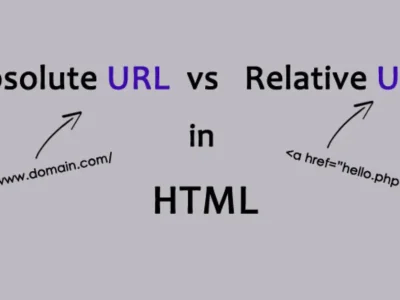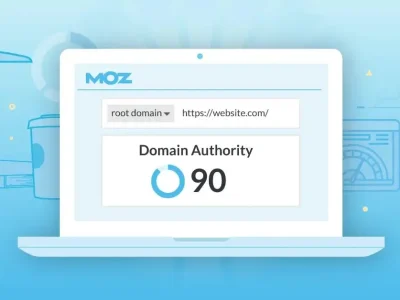In the world of SEO, metrics play a vital role in understanding the performance and ranking potential of websites and webpages. Two popular metrics that are often discussed are Domain Authority (DA) and Page Authority (PA). While these metrics were developed by Moz, other SEO tools like Ahrefs and Semrush also provide similar metrics. In this comprehensive guide, we will delve into the differences between DA and PA and explore how they can be used to improve your online presence. So, let’s get started!
What is Domain Authority?
Domain Authority is an SEO metric that predicts the likelihood of a website ranking well on search engine result pages (SERPs). It is a score that ranges from 1 to 100, with higher scores indicating a greater probability of ranking higher on the SERPs. Moz, the creator of Domain Authority, takes into account various factors like link quality, domain age, and the number of inbound and outbound links when calculating the score.
One important thing to note is that Domain Authority is not a direct ranking factor used by search engines like Google. Instead, it is a predictive measure that estimates how well a website will perform in terms of search engine rankings. It is best used as a comparative metric, comparing your website’s score with that of your competitors in order to gauge its performance in the search landscape.
What is Page Authority?
Page Authority, on the other hand, is an SEO metric that predicts how well a specific webpage will rank in search results. It is similar to Domain Authority but focuses specifically on individual pages rather than the entire domain. Like Domain Authority, Page Authority is also scored on a scale of 1 to 100, with higher scores indicating a higher likelihood of ranking well for the targeted keywords.
Page Authority takes into consideration factors such as link quality, content relevance, and page optimization. However, it does not consider on-page elements like keyword usage or content optimization. Instead, it places a greater emphasis on backlinking, as strong and authoritative backlinks are considered as “votes of confidence” for the authority of a webpage.
Similarities Between Domain Authority and Page Authority
While Domain Authority and Page Authority have distinct purposes, they also share several similarities:
Created by the Same Developer
Both Domain Authority and Page Authority were developed by Moz, a leading SEO software company. Moz offers a suite of SEO tools, and these metrics are just a part of their comprehensive offerings.
Use the Same Scale
Both Domain Authority and Page Authority use a scale of 1 to 100 to calculate their scores. Higher scores indicate a greater likelihood of ranking well in search results, while lower scores indicate a lower probability.
Calculated in a Similar Manner
Both Domain Authority and Page Authority are calculated using machine learning algorithms that consider multiple data points from a website’s SEO profile. These algorithms analyze the relationship between link data and rankings across thousands of search engine results pages. While the exact calculations are not disclosed by Moz, they use a logarithmic scale to account for the exponential difficulty of increasing scores as they approach the higher end of the scale.
Not Direct Ranking Factors
Neither Domain Authority nor Page Authority are direct ranking factors used by search engines like Google. They are predictive measures that estimate the ranking potential of websites and webpages. It is important to remember that having a high DA or PA score does not guarantee top positions on the SERPs. These scores should be used as comparative metrics to assess your website’s performance relative to your competitors.
Differences Between Domain Authority and Page Authority
Although Domain Authority and Page Authority share similarities, there are important differences between the two metrics:
Purpose and Scope
The main difference between Domain Authority and Page Authority lies in what they measure. Domain Authority predicts the overall ranking success of a domain, including all its webpages and subdomains. On the other hand, Page Authority focuses on predicting the ranking success of a specific webpage. Domain Authority provides a broader perspective on a website’s performance, while Page Authority offers insights into the performance of individual pages.
Scores
In general, Domain Authority scores tend to be higher than Page Authority scores. This is because Domain Authority takes into account the overall link profile and other factors across an entire domain, while Page Authority focuses on the specific characteristics of a single webpage. It is not uncommon to see websites with higher Domain Authority scores but lower Page Authority scores for individual pages.
Optimization Strategies
Improving Domain Authority requires a holistic approach to SEO, including building quality backlinks, optimizing overall website architecture, and creating valuable content across the entire domain. On the other hand, optimizing Page Authority involves more specific strategies, such as improving the link profile and optimizing the content and relevancy of individual webpages.
Which Metric Should You Use?
Choosing whether to focus on Domain Authority or Page Authority depends on your specific goals and the scope of your optimization efforts. Both metrics are valuable in understanding your website’s performance, but they serve different purposes.
If you are looking to assess the overall performance and ranking potential of your entire website, Domain Authority is a more suitable metric. It provides a comprehensive view of your domain’s authority and helps you gauge its competitiveness in the search landscape.
On the other hand, if you want to analyze and optimize individual webpages for specific keywords, Page Authority is the metric to consider. It helps you understand the ranking potential of each page and guides your optimization efforts on a more granular level.
Ultimately, a balanced approach is recommended, as both Domain Authority and Page Authority contribute to the overall SEO performance of your website. By improving the link profile, content quality, and relevancy across your entire domain, you can enhance both metrics and increase your chances of ranking well in search results.
Checking Domain Authority and Page Authority
Moz provides tools like Link Explorer and the Domain Authority Checker to check your domain’s authority and individual page authority. These tools offer insights into your website’s link profile, inbound links, and ranking keywords. Other SEO tools like Ahrefs and Semrush also provide similar metrics and scores for domain and page authority.
Conclusion
Domain Authority and Page Authority are valuable metrics that help webmasters and SEO professionals understand the ranking potential and performance of websites and webpages. While Domain Authority provides insights into the overall authority of a domain, Page Authority focuses on the ranking potential of individual pages. By leveraging both metrics and implementing targeted optimization strategies, you can improve your website’s search visibility and drive organic traffic to your content. Remember that these metrics are just one piece of the SEO puzzle, and a well-rounded approach to optimization is key to achieving long-term success.










